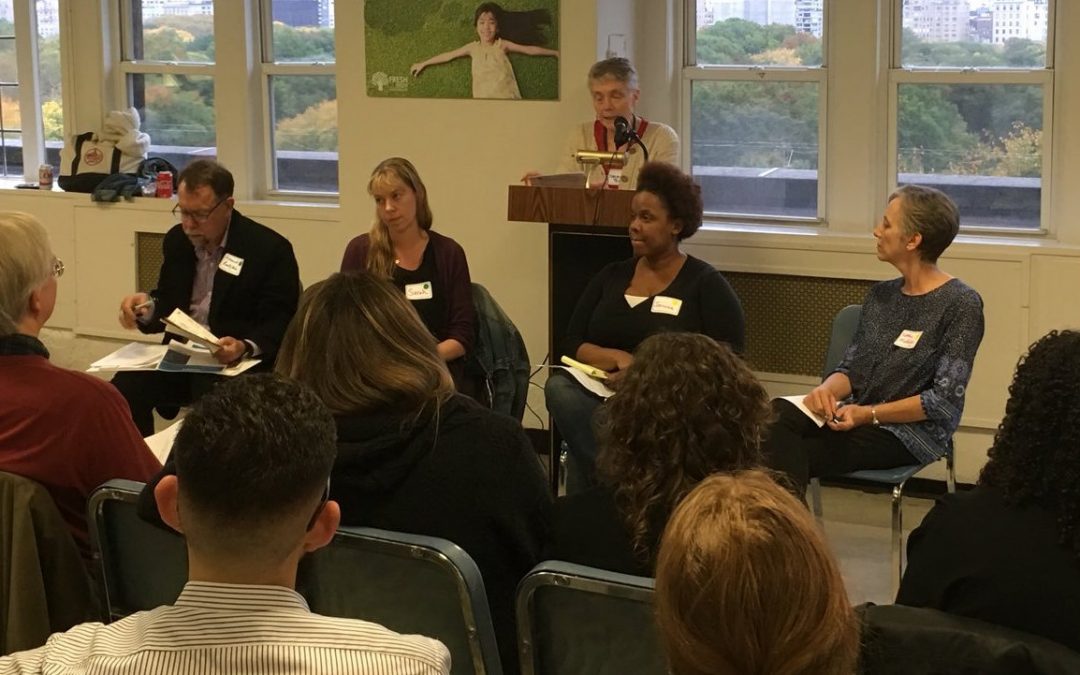The October PENNY Quarterly meeting featured a spirited panel discussion about the possibilities and promises of progressive education framed by the question, ““What does democratic ED look like in a progressive school?” The panel discussion was moderated by Bank Street Dean of the Graduate School of Education at Bank Street College Cecilia Traugh. Below are her opening remarks from the event:
What does a democratic education look like in a progressive school?
In an essay titled “Creative Democracy—The Task Before Us,” John Dewey says, “that democracy is a way of life” (226). He asserts this idea to contrast with the machine-like definition of democracy that emphasizes its structures and mechanisms—voting, Washington DC, Albany. Dewey states:
Democracy as a personal, an individual, way of life involves nothing fundamentally new. But when applied it puts new practical meaning in old ideas. Put into effect it signifies that powerful present enemies of democracy can be successfully met only by the creation of personal attitudes in individual human beings; that we must get over our tendency to think that its defense can be found in any external means whatever, whether military or civil, if they are separated from individual attitudes so deep-seated as to constitute personal character (226).
Dewey maintains that “democracy is a reality only as it is indeed a commonplace of living” (229). Our interest here is in the possibility of making democracy a “commonplace of living” in schools.
There are three ideas from Dewey that I emphasize here:
- “Democracy is a way of life controlled by a working faith in the possibilities of human nature” (226).
- “Democracy is a way of life controlled not merely by faith in human nature in general but by faith in the capacity of human beings for intelligent judgment and action if proper conditions are furnished” (227).
- “. . . democracy as a way of life is controlled by personal faith in personal day-by-day working together with others” (228).
Teaching and leading schools are powerful arenas for the enactment of the idea that democracy is a way of life. To work democratically, at a minimum, we must have faith in the possibilities of children, of fellow teachers and administrators, and of parents.
I turn now to our panel so we can hear their thoughts and experiences in making these ideas real in schools.
